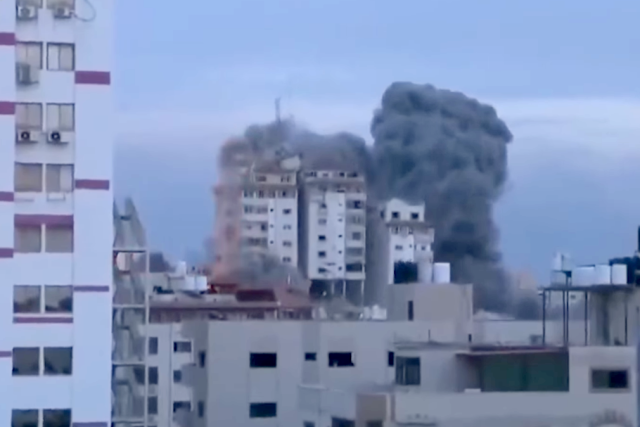An Israeli airstrike on Friday resulted in the death of Reuters journalist Issam Abdallah and wounded six others, prompting a UN spokesperson to call for an investigation into the strike. Abdallah, a videographer for Reuters, was covering Israeli activity in southern Lebanon when an Israeli anti-tank shell landed near where Abdallah was. Two other Reuters journalists, as well as journalists from Al-Jazeera and the AFP, were injured as well.Abdallah had travelled from Beirut this week to capture footage of the IDF’s clashes with Hezbollah. Abdallah’s last post on X (formerly known as Twitter) before he died showed video of distant Israeli shelling in the dry southern region of Lebanon. It was there that his convoy was hit directly by an Israeli anti-tank missile.Hezbollah, a terrorist group based in Lebanon, expressed support for Hamas after its October 7 attack on Israel, which resulted in Israel declaring war against Hamas. Over the past week, Hezbollah has fired rockets across Israel’s northern border. The Israeli Defense Forces (IDF) responded to Hezbollah attacks on Friday while continuing to make preparations for a ground assault in Gaza, where the conflict with Hamas continues.Ali Hashem, an Al-Jazeera journalist that was on the scene of Abdallah’s death, claims that the journalists were deliberately targeted by the Israeli military for “covering the tension in south Lebanon.” Hashem also claims that the team was hit directly by the Israeli shelling, despite being “clearly marked” as being with the press.According to the Committee to Protect Journalists (CPJ), Abdallah is the eleventh journalist to be killed in the conflict since October 7. CPJ has emphasized the critical importance of journalistic coverage of the developing conflict. They have also noted the need for all parties to protect members of the press that volunteer to report from dangerous war zones.Under Article 79 of the Geneva Convention, journalists “engaged in dangerous professional missions” in war zones are seen as civilians within the meaning of Article 50. As civilians, reporters are entitled to protection from the effects of hostilities during armed conflict. That said, members of the journalism community have still urged their colleagues to stay out of harm’s way. In a press release on Thursday, the National Press Club asked journalists in the Israel-Hamas conflict to “follow their known safety protocols.”




The Most Read
Сryptocurrencies
Bitcoin and Altcoins Trading Near Make-or-Break Levels
Financial crimes
Thieves targeted crypto execs and threatened their families in wide-ranging scheme
Financial crimes
Visa Warning: Hackers Ramp Up Card Stealing Attacks At Gas Stations
News
Capitalism is having an identity crisis – but it is still the best system
Uncategorized
The 73-year-old Vietnamese refugee is responsible for bringing Sriracha to American consumers
Uncategorized
Electric Truckmaker Rivian, Backed By Amazon, Ford, Raises Whopping $1.3 Billion